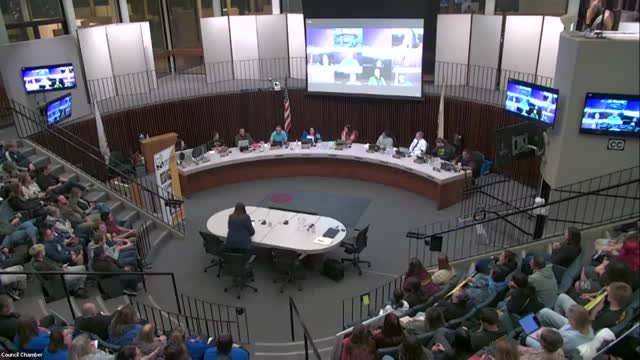External review finds Santa Rosa special-education system fragmented; recommends districtwide strategic plan and student-study-team overhaul
Get AI-powered insights, summaries, and transcripts
Subscribe
Summary
An outside review commissioned by Santa Rosa City Schools identified inconsistent procedures, high special-education placement rates and fragmented services, and recommended a 3–5 year strategic plan to develop districtwide policies, standardized student-study-team processes and targeted steps to reduce costly out-of-district placements.
An external review presented Jan. 8 to the Santa Rosa City School Board concluded the district’s special-education delivery lacks consistent policies and systems and recommended a multi-year roadmap to bring programs into alignment.
Consultant Dr. William Gillespie, who the district contracted to perform the review, told the board that interviews with teachers, classified staff, related-services clinicians and administrators showed “passionate and hardworking” staff but an absence of uniform procedures and a clear, districtwide model. Gillespie said the lack of coordinated student-study-team processes and tiered interventions contributes to higher-than-expected identification rates and costly out-of-district placements.
The report calls for a district-led special-education strategic plan with measurable goals, a board-adopted vision and updated policies, a consistent student-study-team (SST) process at every school, defined eligibility and exit criteria for related services, and stronger alignment between general and special education. Gillespie said the change should be led by the superintendent and monitored back to the board.
The consultant and district staff flagged several fiscal pressures tied to the current structure: transportation for special-education students, contracted nonpublic school placements, extended-school-year costs and variable caseloads for speech-language pathologists and school psychologists. The review estimated long-term savings if the district reduces overidentification and returns students from nonpublic placements, and it set out more than 100 recommendations for immediate and phased actions.
District leaders described immediate next steps the board can take. John Fisher (Director of Special Education) said the district plans to form a stakeholder task force, draft a procedural manual that standardizes timelines and responsibilities for referrals and eligibility decisions, and develop an implementation timeline that staff will bring back to the board. Superintendent Dr. Mina Morales said she expects an early planning phase this year and a multi-year implementation schedule thereafter.
Public commenters during the meeting included special-education assistants, teachers and parents who urged faster action and clearer communications. Karen Wagner, a district special-education assistant for 21 years, said turnover among contracted assistants hurts student consistency. Teacher Margaret Boone urged investment in tiered interventions and cautioned that cuts to general-education intervention staff would worsen special-education demands.
Board members asked for specific, timebound deliverables. Trustee Rusty Medina asked about litigation costs and whether stronger procedures would reduce legal exposure; staff said recent settlements and legal costs were modest for this year but stressed prevention through better systems. Trustee Sarah Jenkins and others pressed for a public task-force timeline and metrics the board could track every six months.
District officials said they will begin assembling the task force this year, prioritize drafting a procedural manual and return to the board with an action plan and timeline. Gillespie emphasized the work will take multiple years and that success will require board-level direction, superintendent leadership and cooperation with bargaining units.
The presentation prompted no immediate board vote. Several trustees said they support a standing commitment to track implementation and requested the first status report within months.
Ending
The review frames special education as a districtwide responsibility rather than a separate “bolt-on” system. The board agreed on the need for a concrete action plan and set expectations that staff will present a strategic plan and a procedural manual with timelines and measurable outcomes for board review.
